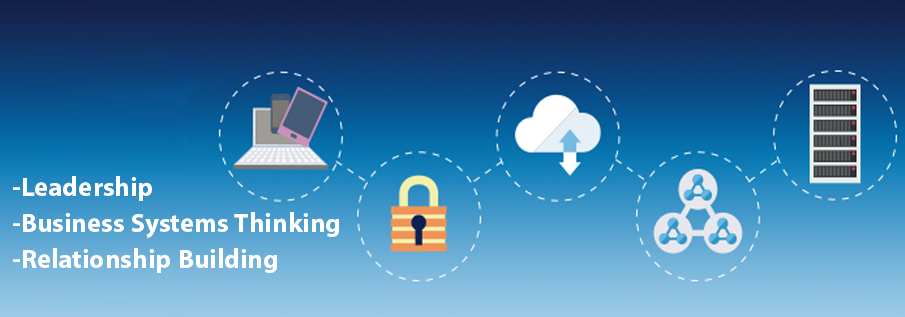
The System Capability Analysis defines the individual performance requirements of the assets based on the overriding objectives defined by the business. This leads to identification of potential high risk areas for the business and provides clarity around where the smallest margins between the “want” and the “can” exist.
Three challenges in IT exploitation:
1. Business and IT vision: The challenges of using IS services for business-IT (or business-technology) alignment.
2. Delivery of IS services: The challenges of delivering high quality IS services cheaper.
3. Design of IT architecture: The challenges of designing and implementing an IT architecture that is inter-operable with existing and future intra-enterprise systems within the company and intra-enterprise systems that are running on collaborators platforms.
The Core System Capabilities:
In order to face these three challenges, we identify a set of nine core System capabilities:
1. Leadership: The capability of integrating IT efforts with business purposes and activities. This capability is to manage organizational arrangements, structure processes and staffing- tacking any challenges in these arrangements
2. Business Systems Thinking: The capability of ensuring optimal business-IT arrangement; this capability is about business problem solving with IT perspective, process re engineering, and strategic development.
3. Relationship Building: The capability of facilitating wider dialogs between business and IS communities.
4. Architectural Planning: The capability of creating IT architecture that can respond to present and future business needs, and allow future growth of the business.
5. Making Technology work: The capability of rapidly achieving technical progress, making the company forerunner (leader), or a quick adapter (follower).
6. Informed buying: The capability is for analyzing the external markets for IT suitability the specific business opportunities and for selection of a sourcing strategy to meet business needs and technology solutions.
7. Contract Facilitation: The capability of ensuring the success of existing contracts for IT services; this capability is about contract facilitating to ensure that problems and conflicts are to be solved fairly. This is basically about forming a single point of contact for customer relationship.
8. Contract Monitoring: The capability of measuring performance of suppliers and managing suppliers.
9. Vendor Development: The capability of identifying the potential added value of IT business service suppliers. This capability is about creating the Win-Win solution with collaborating partners and for forming a long-term relationship, which may – among other benefits – avoid switching cost.
